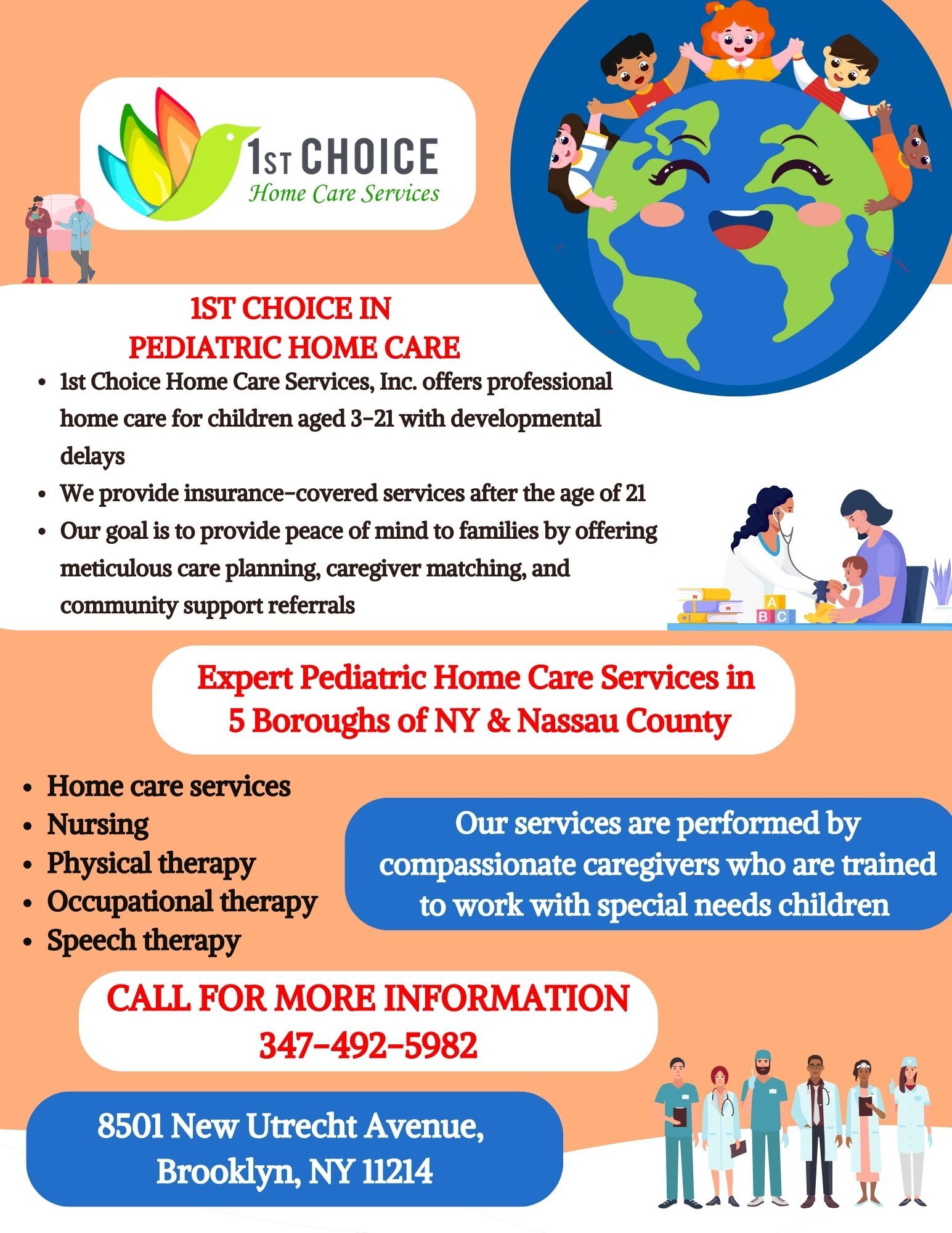Parenting is a journey filled with joy, challenges, and unexpected twists. For parents of children with developmental delays, this journey can be particularly demanding. Developmental delays encompass a broad range of issues that affect a child's physical, cognitive, communication, social, emotional, or adaptive development. These challenges can leave parents feeling overwhelmed and unsure how to best support their child. However, home health aides can be crucial in providing assistance and support to the child and their family.
Challenges Faced by Parents:
- Emotional Strain: Parents of children with developmental delays often experience a range of emotions, including guilt, sadness, and frustration. They may feel guilty for not being able to "fix" their child's condition or for any perceived role they played in causing the delay.
- Financial Burden: Managing the costs associated with therapies, medical appointments, and specialized equipment can place a significant financial strain on families.
- Time Constraints: Caring for a child with developmental delays often requires a considerable amount of time and energy. Parents may find it challenging to balance caregiving responsibilities with work, household chores, and other obligations.
- Social Isolation: The demands of caring for a child with developmental delays can lead to social isolation for parents. They may struggle to find time to socialize with friends or participate in activities outside the home.
- Advocacy Fatigue: Navigating the healthcare and educational systems to ensure their child receives the appropriate support and services can be exhausting for parents. They may face bureaucratic hurdles and encounter professionals who are not adequately trained to address their child's needs.

How Home Health Aides Can Help:
- Respite Care: Home health aides can provide much-needed respite for parents by stepping in to care for their child, allowing parents to take a break and attend to their own needs.
- Assistance with Activities of Daily Living: Home health aides can assist children with developmental delays with tasks such as bathing, dressing, and meal preparation, helping to promote independence and autonomy.
- Support with Therapies: Home health aides can work alongside therapists to implement therapeutic interventions recommended for the child. This may include exercises to improve motor skills, speech therapy exercises, or activities to enhance cognitive development.
- Household Support: Home health aides can assist with light household chores such as laundry, cleaning, and meal preparation, easing the burden on parents and allowing them to focus on spending quality time with their child.
- Emotional Support: Home health aides can provide emotional support and companionship to both the child and their family. They can serve as a trusted confidant, offering a listening ear and words of encouragement during challenging times.
Conclusion:
Parenting a child with developmental delays comes with its unique set of challenges, but it's a journey that many parents navigate with love, determination, and resilience. Home health aides can play a vital role in supporting these families by providing practical assistance, emotional support, and respite care. By working together as a team, parents and home health aides can help children with developmental delays reach their full potential and thrive.
1st Choice Home Care Services, Inc. offers a wide range of services for your loved ones. For more information, please contact us; we are ready to help 24/7.
1st Choice Home Care Services, Inc. offers a wide range of services for your loved ones. For more information, please contact us; we are ready to help 24/7.

